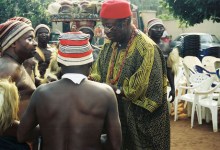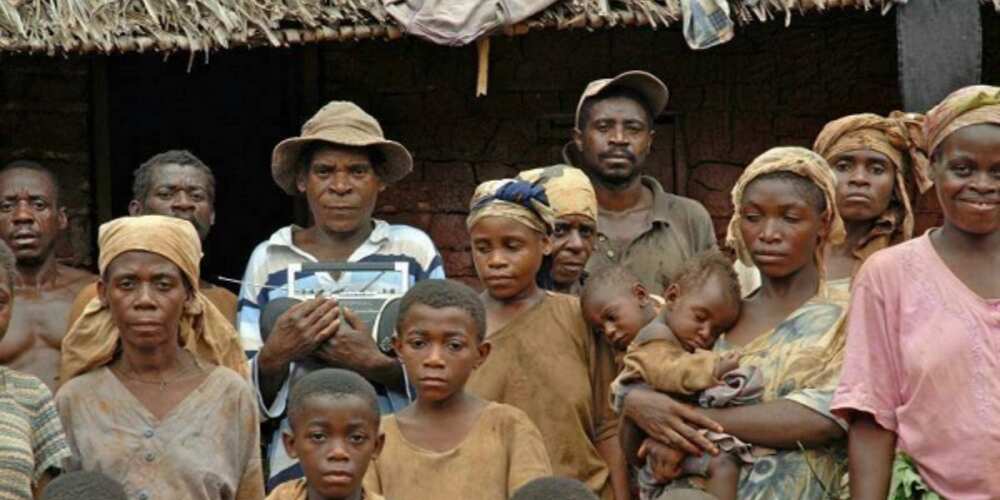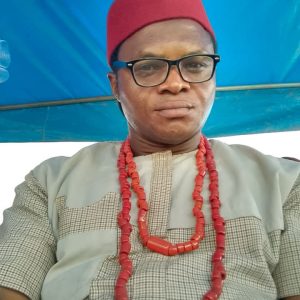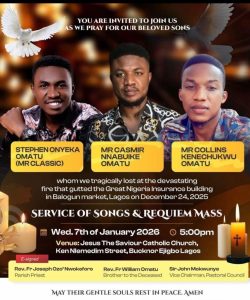ANCIENT HISTORY: IGBO PEOPLE IN EQUATORIAL GUINEA

Igbo is the third largest ethnic group in Bioko, Equatorial Guinea.
Most of their descendants moved from Arochukwu in Abia State. They emigrated to Bioko during the Spanish exploitation plantation in the 19th century and have settled there forever. They still speak Igbo language till date.
All The Fascinating Facts You Need To Know About the Igbo People of Bioko in Equatorial Guinea:
Equatorial Guinea, located at the Eastern end of the Gulf of Guinea, West coast of Africa, is the only Spanish speaking country on the continent. The tribes dwelling in this country include the Bubi, Fang and the Igbo people who are also a dominant ethnic group in Nigeria. The Igbo people of Bioko, as officially declared by the government of Equatorial Guinea, is the third-largest tribe after Fang and Bubi tribes, and occupies a small area in Bioko. They speak Pidgin English, Fang, Igbo and Bubi indigenous languages, as well as Spanish, the official language of Equatorial Guinea. Nigerians call the country “Panya”, a corrupted version of the word “España” (Spain) which is pronounced España. Their communities are small compared to Bubi and Fang. Majority of them migrated to Bioko from Arochukwu, Abia State, Nigeria. Igbos of Equatorial Guinea, numbering 53,500, are no longer unreachable. They are part of the Igbo people cluster within the Sub-Saharan African affinity bloc, this group, though a minority of people ranking third-largest in Equatorial Guinea, a country with a total population of 1.5Million people. Their primary language is Igbo. The primary religion practiced by the Igbo is marginal Christianity, a form of religion with roots in Christianity but not theologically Christian. BIOKO (Formally Fernando Po); Formerly known as Fernando Po, Bioko is the largest region in Equatorial Guinea, the inhabitants speak Pidgin English, Spanish foreign language, Fang, Igbo and Bubi indigenous languages.
Igbo People in Equatorial Guinea:
The original inhabitants of Bioko are a group of people called Bubi, descendants of mainland Bantu tribes who fought and defeated the Fang and pushed them inland while they occupied the coastal areas. The Fang is also an ethnic group in Cameroon.
Bioko also is home to descendants of former slaves who were freed in the nineteenth century. Many Bubis have recently immigrated to the continent, and along with other, smaller Bantu-speaking tribes, comprise the remaining 10 percent of the population in Rio Muni. Minority tribes include the Kombe, Balengue and Bujebas. Most people in this region speak in their tribal languages, either Fang, Bubi, or Igbo of which are in the Bantu family of languages.

National Identity:
Equatorial Guineans identify first with their tribe or ethnic group and secondly with the Nation. The current country was formed during Spanish rule, linking the main island of Bioko with the mainland territory, despite the fact that the two were culturally distinct. Since the unification of the two, there has been some intermingling and migration, particularly of mainland Fang to Bubi-inhabited Bioko. The Fang tribe itself is not limited to the Rio Muni area but also extends north into Cameroon and south into Gabon.
Ethnic Relations:
Legally, there is no discrimination against ethnic or racial minorities, but in practice, this is not the case. The Bubi have experienced persecution under the post-independence government. Prior to independence, the group formed a majority on Bioko. However, since 1968, many Fang migrated to the island and a small subclan, the Mongomo, has dominated the government. There is resentment and violence not only between the Bubi and the Fang but also between the Mongomo and other Fang subgroups.
Independence of Bioko:
The Bubi, a warlike tribe, are leading the independence struggle, a proposed country that includes the Igbo minority and Fang, though there is no record of any opposition to the demands for Republic of Bioko by Fang and the Igbo. As regards the language, Igbo is a recognized official language in Equatorial Guinea and it has been confirmed that the people still speak the Igbo language which has some form of deviation from the modern Igbo spoken in Nigeria.
Some people who have seen them said they say, ‘bia ikaa’ for ‘come here’.


